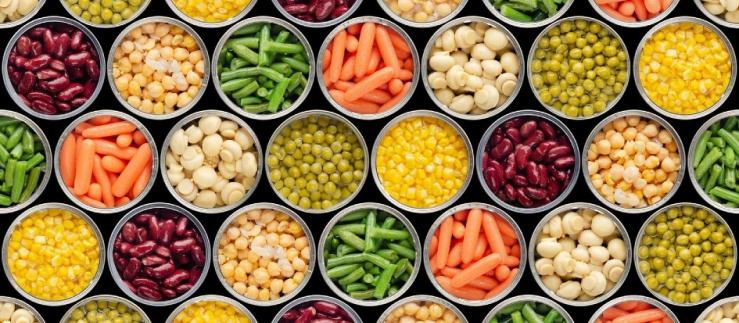Use of dairy products on the rise
Among the key drivers of this growth are the rising number of middle-class consumers, higher disposable household incomes, an evolving inclination towards western dietaries and an increasing health consciousness among Indonesian consumers.
Due to limited local milk production capacities Indonesia still relies heavily on milk imports. In 2017, the country imported 39,504 tons (74% of the total demand) of dairy products, worth 973 US$ million. This total value grew by 26% from the previous year with concentrated milk and cream as the main import products. The dairy product imports originated primarily from New Zealand with a value of US$ 340 million or 35.22% of the total share, followed by Australia (13.72%), USA (12.1%), France (11.28%) and Belgium (7.67%) respectively. The import value of Swiss diary exports reached USD 631,000 (0.06% of the total), with buttermilk & yoghurt being the most important products.
Key players in the dairy product market
According to Euromonitor, the dairy product market in Indonesia is dominated by four key players namely PT Frisian Flag (Dutch), Nestlé (Switzerland), PT Ultrajaya (local) and PT Indolakto (local). However, the market has seen enhanced competition with several new players entering the market in recent years. Among them are Fonterra Indonesia, Kalbe Morinaga, Nutrifood Indonesia, Danone Dairy Indonesia (France), Sari Husada, Greenfield Indonesia (New Zealand) and ABC Dairy Indonesia. In the market for drinking milk (UHT) PT Ultrajaya with its brand Ultra Milk dominates this segment with a share of 40.60%, while the largest proportion of condensed milk is controlled by Frisian Flag. In the yoghurt segment PT Yakult Indonesia (Japan) leads the pace with a market share of more than 70% of its Yakult brand. With a share of 79% PT Kraft Ultrajaya Indonesia controls the cheese market.
Hypermarkets, Restaurants & Hotels as main distribution channels
In general, the imported products reach the end costumers through grocery retailers such as hypermarkets and supermarkets. In 2017, top key players in the hypermarkets section are Hypermart (113 outlets), Carrefour-Transmart (110 outlets), Giant (166 outlets) and Lottemart (46 outlets). In the supermarkets section Superindo (157 outlets), Food Mart (40 outlets), Hero (32 outlets), Food Hall (26 outlets), and Ranch Market (14 outlets) are among the best-known retailers. Other important distribution channels include 4- and 5-stars hotel chains and high–end restaurants (HORECA). These foodservice providers have a high demand for premium western-style food items thus fueling the growth for imported products. As of 2016 (latest available year), there are about 2,387 star-rated hotels, 100,540 full-service restaurants as well as more than 6,000 cafes and bars in Indonesia. Both hotel and restaurant chains receive their supplies from importers or distributors primarily.
Regulatory framework to enter the Indonesian dairy market
To enter the Indonesian market, the principal is required to appoint a reliable local partner that will handle the product registration, importation and distribution of the foods. Imported dairy food products in retail packaging shall be registered with the Indonesian Food & Drug Control Authority (BPOM). Products in bulk packaging for further processing may not be subject to registration. To obtain a registration number, the importer shall conduct the online registration and submit administrative documents (e.g. LoA as distributor, Free Sale Certificate, GMP certificate etc.) and technical documents (e.g. ingredient list, Certificate of Analysis, label information etc.). The complete documentation will go through the evaluation process which takes approximately 1.5-6 months at a cost of IDR 750,000 (approximately USD 50). However, a priority online registration service has been made available. Importers with a positive track record (e.g. no disapproval record during the 5 latest registration applications) will benefit from a shorter registration time of max. 10 working days. The registration number is valid for 5 years and can be extended at the earliest 12 months and at the latest 10 days before the expiration period.
Furthermore, dairy product imports require a recommendation letter from the Ministry of Agriculture (MOA) and should go through a technical verification process by an appointed surveyor. Before exporting to Indonesia, exporter/brand owner needs to apply for the “establishment approval” from MOA.
Entry permit, taxes & custom rules
To release the products from customs, the importer needs to obtain an entry permit (SKI-Surat Keterangan Import). Indonesia imposes import tariffs averaging 5% for dairy products with an exception for fermented dairy products where a tariffs ranging between 5-10% are levied. Additionally, a value-added tax of 10% is applied for imports. Furthermore, the principal has to be aware about the halal certification requirements that are expected to come into effect as soon as 2019. Food and beverage products are the top priority on the implementation schedule. Not halal-certified food items are required to carry a signage in the form of an image or a written notification identifying it as such.






